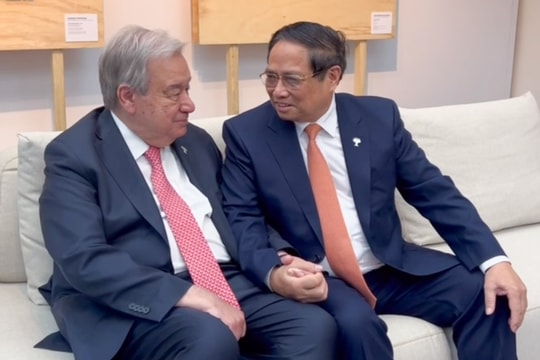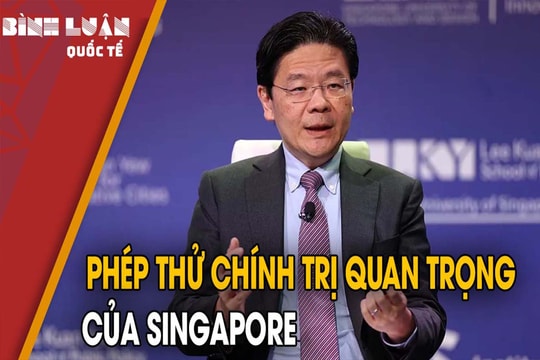Women in the race for the UN Secretary-General seat
The race for the seatSecretary-General of the United Nationsis expected to create a big change in gender equality because many people hope to have womenSecretary-General of the United NationsFirstly.
For the first time in the 70-year history of the United Nations, the race for the position of Secretary-General of the United Nations has become extremely dramatic. Mr. Ban Ki-moon will end his second term at the end of this year and has no intention of continuing to seek a third term. So far, 8 candidates have emerged, half of them veteran female politicians.
The year of turning points
This year marks a turning point in the way the head of the UN Secretariat is selected. Traditionally, the five permanent members of the Security Council discuss in private and then nominate a candidate for all member states present at the General Assembly to appoint. However, this “closed door” process will be scrapped, with General Assembly President Mogens Lykketoft (Denmark) wanting to change that, encouraging countries to nominate their own candidates and holding public hearings. “What we are going to do is create unprecedented transparency in the process of selecting the new Secretary-General,” Mr. Lykketoft said.
Mr. Lykketoft’s goal is to give the 193 members of the General Assembly a chance to exert direct influence over the selection process, rather than passively voting as in the past. The first hearings are scheduled for April 12, 13, and 14 before the General Assembly in New York. Several civil society groups will be invited to question the candidates.
In addition to the change in the selection process, this year's race is also expected to create a major change in gender equality as many people hope to have the first female Secretary-General of the United Nations. Last February, a group of experts and UN officials launched a campaign calling for the election of a female Secretary-General through the website www.womansg.org.
“There have been eight Secretary-Generals to date, but never a woman has been given this title, even though women represent half the world’s population,” the website asserts. Samantha Power, the US Ambassador to the United Nations, and Mr. Lykketoft have repeatedly spoken out “calling for equal opportunities for both women and men to access positions of influence.”
Countries including Croatia, Macedonia, Montenegro, Bulgaria, Moldova, Slovenia, Portugal and New Zealand are all hoping to get their turn in the golden age. There has never been a Secretary General from Central or Eastern Europe before, and Russia is keen to change that.
Looking at the list of candidates this year, it is a good sign that most of them come from this region, including 3 strong female candidates from Bulgaria, Moldova and Croatia. Meanwhile, Ms. Elizabeth Cousens, former US Ambassador to the United Nations, said that the rotation of this position is not yet clearly regulated.
“Western Europe has been in charge three times, Latin America once, Africa has had two famous Secretary Generals and Asia has also contributed two representatives,” said Ms. Cousens. However, Ms. Cousens does not care about rotation because, according to her, the most important criterion is to choose “a voice representing the voiceless class.”
Helen Clark
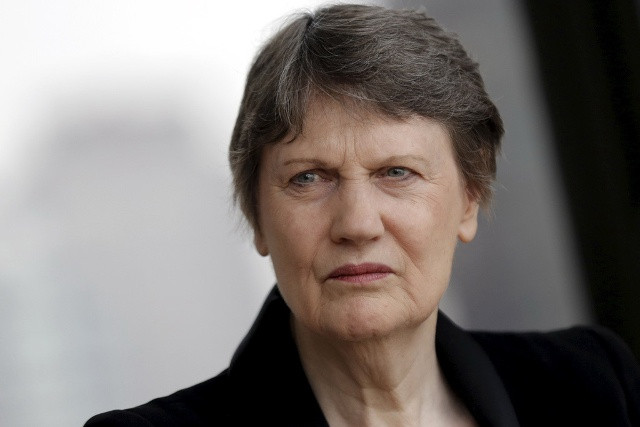 |
The former Prime Minister of New Zealand, who is currently head of the United Nations Development Programme, is the most likely female candidate. Ms. Clark's role at UNDP has given her the opportunity to build good relationships with many developing countries in the General Assembly.
As the most powerful woman in the United Nations today, Ms. Clark, 66, said when announcing her candidacy: “I am not running as a woman, but as the best person for this position. However, I am clearly a woman and a supporter of women’s empowerment, wanting women to climb to the highest peaks in the fields they participate in.”
The most favorable objective factor for Ms. Clark is “the tense relationship between Russia and Eastern European countries that makes it possible for Russia to use its “big guy” veto power to block any candidate from this region,” according to the analysis of Professor Alexander Gillespie (Waikato University, New Zealand). This will be a great opportunity for Ms. Clark and for the Anglo Saxon group, now known by a new name as the Five Eyes alliance including the UK, the US, Canada, Australia and New Zealand.
Irina Bokova
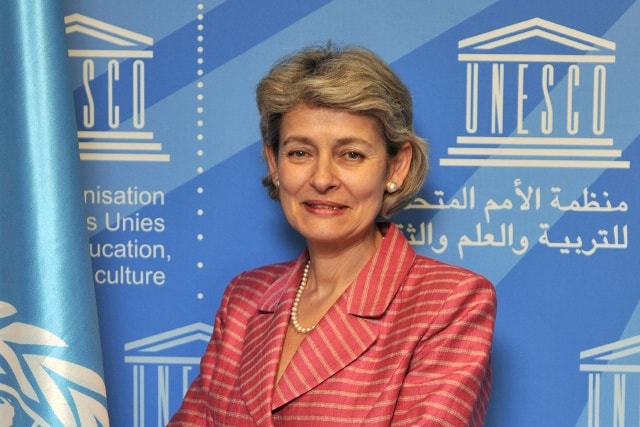 |
Before Helen Clark emerged, UNESCO Director-General Irina Bokova, 63, was the strongest female candidate because of her experience running a major UN agency for 7 years and because of the good relationship she had built with Russia.
She was one of several foreign dignitaries, including Cuban President Raul Castro and Chinese President Xi Jinping, invited to attend Russian President Vladimir Putin’s World War II victory parade last year. Many newspapers called her an ally of Russia, which is both an advantage and a big disadvantage from the “big guy” America. She is said to have angered the US by recognizing Palestine as a state.
Ms. Bokova had defeated her big rival, EU High Commissioner Kristalina Georgieva, to receive the nomination of the Bulgarian government for the position of Secretary General.
Natalia Gherman
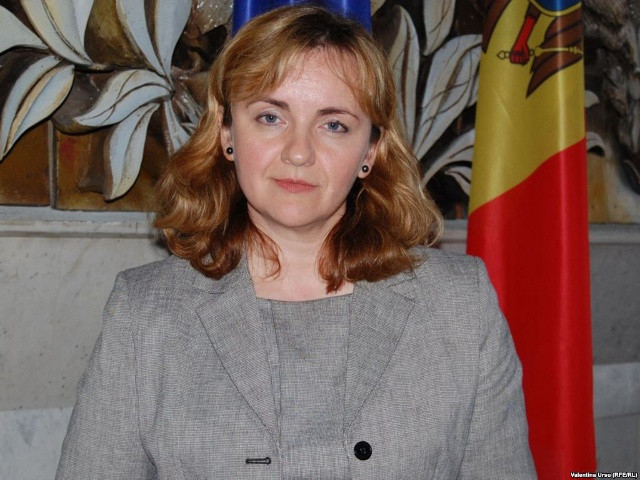 |
Like Vesna Pusic, the biggest obstacle for the youngest female candidate, Natalia Gherman (47 years old), former Deputy Prime Minister and Foreign Minister of Moldova, is Russia because there are still many problems between the two countries related to the stranded land of Transnistria.
The daughter of Moldova’s first president, Mircea Snegur, has extensive experience living and working in Austria, Sweden, Norway and Finland during her time as ambassador. Gherman’s journey to the position of Secretary-General also includes the world’s recognition of her activities in support of human rights and gender equality. In 2014, she was named by the British newspaper The Guardian as “one of four remarkable women in world politics because they are leaders of change everywhere”.
According to Thanh Nien

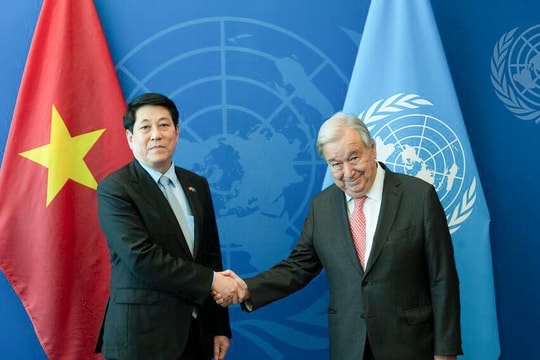
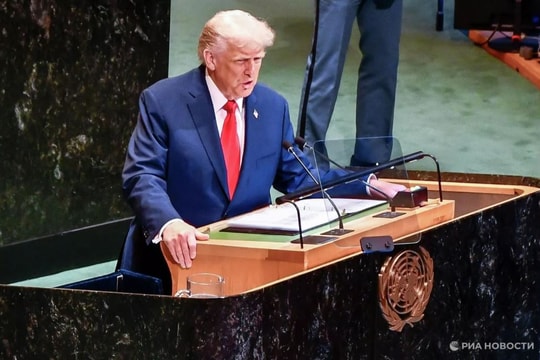
.jpeg)
